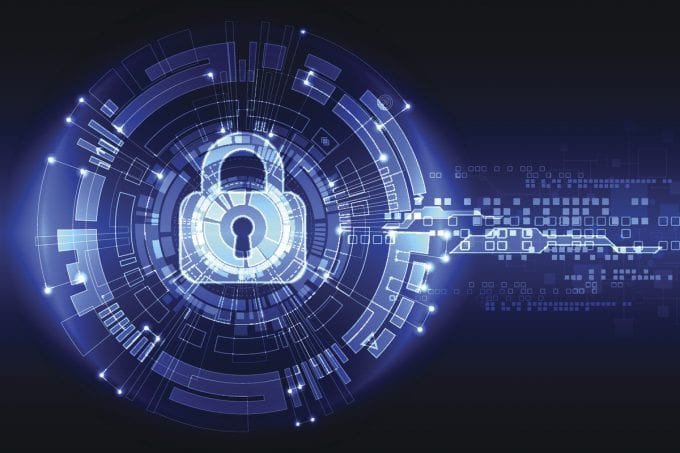It isn’t hard to see why cybercriminals frequently target businesses. Many business databases are treasure troves of sensitive financial information and relevant client documents.
If unwelcome visitors can find their way into your network, they can do considerable harm. That being the case, every business owner owes it to themselves, their workforce, and their clients to make cybersecurity a top priority.
Enterprises that are ready to get serious about protecting their data would do well to consider the following security pointers.
Network Encryption

When it comes to locking down your office network, encryption is an absolute must. While there are several different forms of encryption offered by most routers, your best bet is generally WPA2, as it’s far more difficult to crack than WEP, AES, and TKIP.
Additionally, abstain from using your router’s default password and log-in. Since most routers come with built-in log-in credentials for their respective administration menus, crooks can easily find their way in if they’re able to ascertain a router’s manufacturer and model number.
As such, changing this info should be your priority after getting a new router. After the new log-insure created, be very discerning about who you share them with. Most employees don’t require access to your router’s administration menu, so this shouldn’t prove difficult.
Hide Your Network
Hiding your network can be the perfect way to complement encryption. You can do this by going into the network administration menu and electing not to broadcast your network’s SSID.
That will prevent third parties from seeing your system and prohibit new devices from logging on. Of course, the downside to this has to temporarily turn SSID back on every time you wish to connect a new method to the network.
Still, this minor inconvenience is a small price to pay for an additional layer of security. Furthermore, enabling and disabling SSID shouldn’t take more than a few seconds.
Smart Naming

If turning off SSID isn’t an option, giving your network an unassuming name may prove useful at keeping uninvited guests at bay. For example, if your network name is something along the lines of “SmithWebDesign,” anyone viewing nearby networks is guaranteed to realize that it belongs to a business. Additionally, avoid using your router’s default name.
Most routers come with network names that reveal their makers and model numbers, and cybercriminals can do quite a bit with that information. Ergo, for best results, abstain from using the names that refer to your business or the type of router you own.
Password Protection
Password protecting your network is among the most basic – and most effective – ways to keep it safe. Some cybercriminals exclusively target unsecured ones, and taking this simple measure can stop them in their tracks.
However, password protection only works when employees abstain from sharing passwords with third parties. With this in mind, seek to create a culture of security around your office. Make sure every team member understands the importance of the security and how vital is it that they keep passwords to themselves.
Everyone being on the same page concerning safety can significantly reduce the likelihood of slip-ups and breaches. For added protection, take care to change essential passwords on a semi-regular basis.
Employee Cooperation

Your best efforts at network security will fall flat in the absence of employee cooperation. That being the case, you and your team members must be on the same page concerning cyber threats.
As previously stated, it’s essential to educate your workforce about the various threats facing your network, but for maximum effectiveness, you’ll need to provide a little incentive. That means rewarding employees who exhibit admirable cybersecurity prowess and put your teachings to good use.
Also, take care to encourage team members who have ideas on how to improve the security to bring their proposals your way.
On a less enthusiastic note, ensuring employee cooperation sometimes means imposing consequences on team members who are found to violate specific rules. That isn’t to say that you’ll need to fire anyone or set guidelines that are overly strict.
Still, your workers should understand that diverging from established security practices not only stands to impact your business as a whole – but also them individually.
Protect Important Hardware
Keeping important hardware safe is an integral part of maintaining the security. For example, your router should be kept in a secure location and be inaccessible to team members who have no business making adjustments to it.
Similarly, strict rules regarding the sharing of work computers and other internet-enabled devices should be placed into effect. If employees regularly take such devices home or use them in public, the likelihood of loss or theft increases exponentially.
As such, you may want to consider limiting the circumstances under which work devices may be taken off the premises. Furthermore, make sure that every device associated with your office is password protected. That will ensure that even if a device is stolen, the perpetrator will have a hard time finding their way in.
Security Software

No enterprise should be without a dependable security program. Finding the right web security service can be a boon to your business’s long-term security. When shopping around, look for products that offer data loss prevention, sandbox analysis, and centralized management.
The right program will be able to detect and eliminate a broad assortment of cyber threats, ensuring the security of your network for years to come. So if you are interested in some security softwares, check out TrendMicro.
Businesses of all sizes are among the most common targets of cybercriminals. If the wrong people can get their hands on an enterprise’s financial data, client info, or employee records, they can do substantial damage.
Fortunately, keeping unwelcome visitors off your office network doesn’t have to be an exercise in endurance. With the help of the previously discussed tips, you can effectively secure your office network and provide yourself, your workforce, and your clients with tremendous peace of mind.









